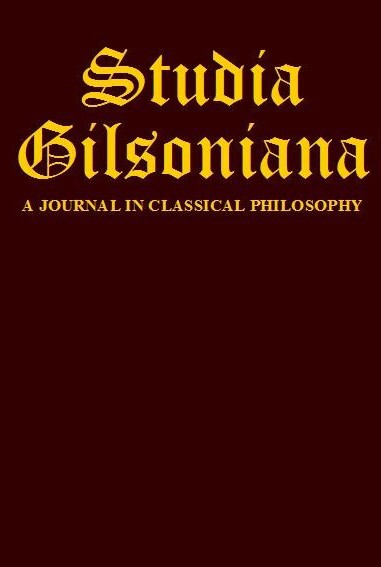Philosophical Creationism: Thomas Aquinas’ Metaphysics of Creatio ex Nihilo
Philosophical Creationism: Thomas Aquinas’ Metaphysics of Creatio ex Nihilo
Author(s): Andrzej MaryniarczykContributor(s): Hugh McDonald (Translator)
Subject(s): Philosophy, History of Philosophy
Published by: International Étienne Gilson Society
Keywords: creatio ex nihilo; Thomas Aquinas; philosophical creationism; creationism; creation; God; production; universe; world
Summary/Abstract: All philosophers, beginning with the pre-Socratics, through Plato and Aristotle, and up to Thomas Aquinas, accepted as a certain that the world as a whole existed eternally. The foundation for the eternity of the world was the indestructible and eternal primal building material of the world, a material that existed in the form of primordial material elements (the Ionians), in the form of ideas (Plato), or in the form of matter, eternal motion, and the first heavens (Aristotle).The article outlines the main structure of the philosophical theory of creation ex nihilo developed by St. Thomas Aquinas and indebted to his metaphysical thought. It shows the wisdom-based and ratiocinative foundation of the rational cognition of reality—reality that comes from the personal creative act of God. It concludes that the perception that the beings called to existence by the personal act of God the Creator are intelligible is the ultimate rational justification for the fact that our human cognition, love, and spiritual creativity are rational.
Journal: Studia Gilsoniana
- Issue Year: 5/2016
- Issue No: 1
- Page Range: 217-268
- Page Count: 52
- Language: English

